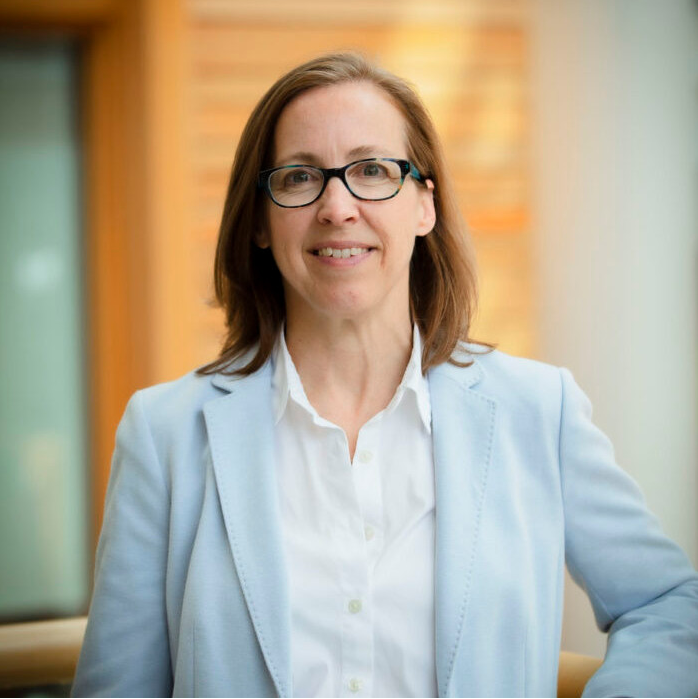Enter the venture studio approach.
Gaining traction over the past few years, venture studios build companies rapidly from start to finish. They invest pre-seed capital and actively support the startup’s founding team to get startups to their first venture capital funding.This approach is novel for universities but possibly quite attractive to a university’s world-renowned research faculty in commercializing their innovative research. Universities are good at providing programs and connections for faculty entrepreneurs to help them launch new ventures, but often lack additional resources to better position and support those startups for ongoing success. This creates a gap that venture studios can help fill.
“Carolina has discovered and sees something through implementing this very novel, new model to translate and commercialize health research,” says Bob Dieterle, managing director of the Digital Health Venture Studio at the Eshelman Institute for Innovation at UNC-Chapel Hill and an entrepreneur-in-residence with Innovate Carolina. “It’s very risky to get a company launched because so many fail, but with a venture studio, almost all companies succeed.”
Eager to give UNC startups a promising new avenue to explore, Dieterle encouraged leaders at the Eshelman Institute for Innovation, Innovate Carolina, UNC Health and UNC Research to come together and pilot the venture studio approach. At their core, venture studios combine a company-building function (ideation and concept validation, business model design, and founder recruitment) with a source of initial capital, providing speed, financial advantage and functional support to emerging startups at launch and in their initial growth period.

“Carolina has a lot of digital health research, ranking sixth in the U.S. for federally funded health sciences research. Leveraging a venture studio can really unlock digital software commercialization here.” – Bob Dieterle, managing director of the Digital Health Venture Studio at the Eshelman Institute for Innovation at UNC-Chapel Hill.
“Venture studios are one of the fastest growing new asset classes in the venture capital world. They’ve grown 625 percent in the last seven years, specifically in the software and digital domain,” says Dieterle. “Carolina has a lot of digital health research, ranking sixth in the U.S. for federally funded health sciences research. Leveraging a venture studio can really unlock digital software commercialization here.”
Michelle Bolas, UNC-Chapel Hill’s chief innovation officer and executive director of Innovate Carolina, says mechanisms like venture studios have the potential to give Carolina inventors a competitive edge.
“Markets and technology trends are in rapid flux, so the University is constantly looking ahead to identify and test new innovation practices that equip our inventors and entrepreneurs with what they need to move technologies and companies forward faster and stay on pace with industry,” says Bolas. “The venture studio model is a promising opportunity in the quickly evolving digital health arena to discern which venture concepts have real market potential, surround those teams with deep industry-specific support, and make sure that we are being agile and precise in building startups that meet very targeted patient and provider needs.”
“At the highest level, we know how important digital health is to our industry,” says Carol Lewis, vice president of UNC Health Enterprises. “Digital transformation is coming, and it is coming at us from every angle. There’s no reason why the health system and the University shouldn’t be big players in the digital solution marketplace. As health care experts, we need to help drive this industry transformation to create high quality, impactful digital health solutions.”
For the pilot, Dieterle knew it would be important to work with a best-in-class venture studio that could help Carolina get the most from its digital health potential.
“What is key in digital health startup innovation is having domain experts that really understand what is broken,” adds Dieterle. “In general, universities have professors that are nationally known and are true domain experts on a problem. Matching these faculty experts who don’t necessarily know how to run a company with a venture studio… that collaboration can be quite powerful in forming very successful startup companies.”
A novel approach
Dieterle identified a strong venture studio partner in High Alpha Innovation, which combines the speed and learning ability of a startup with the knowledge and scale of a large organization. High Alpha Innovation co-creates advantaged startups to solve compelling problems. In partnership with corporations and universities, the firm generates and validates business ideas, sources entrepreneurial founders, launches and nurtures companies to scale, and establishes permanent startup creation capabilities.
“For certain types of ideas and founders, a venture studio increases the probability of success down the road,” says Elliott Parker, CEO of High Alpha Innovation. “A venture studio de-risks the company’s ability to raise capital, access talent and get traction in the market with customers via combining a build team with a source of a capital venture fund.”

“The venture studio model is a promising opportunity in the quickly evolving digital health arena to discern which venture concepts have real market potential, surround those teams with deep industry-specific support, and make sure that we are being agile and precise in building startups that meet very targeted patient and provider needs.” – Michelle Bolas, chief innovation officer at UNC-Chapel Hill and executive director of Innovate Carolina
High Alpha Innovation is the partner-facing arm of High Alpha, a pioneer of the model – and subsequently one of the most prolific venture studios. Since 2015, High Alpha has launched about three dozen companies at a high rate of success. In partnering with corporations and universities to build “advantaged startups,” High Alpha Innovation produces startups that have a natural advantage of gaining traction in the market and a greater chance of success than if they were trying to do it on their own.
“For faculty inventors at UNC-Chapel Hill and employees of UNC Health, many of whom don’t have experience with startups or taking research and solutions to market, High Alpha Innovation offers a new commercial pathway,” says Lewis. “This team knows how to take a company from ground-zero through its first critical milestones to reach a level of maturity and bring in external investors to carry the company forward.”
“When we think about the environments in which a venture studio works well, you need three primary ingredients: ideas for new companies, people who can be helpful to these businesses being formed or who can actually be brought in to run the companies, and access to capital to fund the company’s growth,” says Parker. “And UNC has all three of those things in abundance, and that’s exciting.”
Accelerating ideas
University and UNC Health leaders have been talking about how to get the most from digital health opportunities for some time but haven’t landed on the right model, says Lewis.
“We know there are many digital health startups trying to develop innovative solutions, yet most of them struggle because they don’t have direct access to patients. They often aren’t familiar with clinical workflows and they don’t necessarily understand health care systems,” says Lewis. “Ideas coming from our faculty and employees are based on their understanding of how health care really works. They’re on the front lines. They see the problems, and they know what needs to be done. We have an edge in terms of ideas and our ability to execute them, but we need the entrepreneurial and commercialization skillset.”

“For certain types of ideas and founders, a venture studio increases the probability of success down the road. A venture studio de-risks the company’s ability to raise capital, access talent and get traction in the market with customers via combining a build team with a source of a capital venture fund.” – Elliott Parker, CEO of High Alpha Innovation
Lewis, Dieterle and others on the team invited 25 promising digital health concepts from across the University and health care system to take part in the High Alpha Innovation pilot. Participants came from UNC Health, the College of Arts and Sciences, the Adams School of Dentistry, the Eshelman School of Pharmacy, the School of Medicine, and the Gillings School of Global Public Health. The initial 25 concepts provided the basis for a 13-week program, with a goal of producing two concepts that would be most feasible to deploy through the venture studio approach. The concepts selected needed to address a problem that was big enough or urgent enough to solve, as well as have the market potential to form a new business.
“Every stage of the venture studio process provides feedback to inventors, and I think that’s helpful because if you’re an employee, faculty member or researcher and you have an idea… you can bring it into a process like this and get expert feedback,” says Lewis. “Feedback related to whether or not there is commercial potential or what might need to be done differently about the idea or solution in order to make it commercially attractive. That is invaluable.”
Sprint week
From the 13-week program, two concepts were chosen to go through Sprint Week, a high-stakes, all hands-on-deck forcing function where teams work non-stop to test assumptions and build confidence for a go or no-go launch decision.
“Sprint Week is an important function in our process where we take some hypotheses about business models and solutions and over the course of a few days, gather all the information we need to make a confident go or no-go decision at the end of the week,” says Elliott. “To feel the weight of that during the week, the seriousness of it, motivates people to go above and beyond to make sure we are confident that we can make a good decision about whether or not we should spend a lot of time and money moving forward with a concept.”
The teams worked fervently to compress the first six months of building a business into just one week, with around 16 people (eight per startup concept) gathering at UNC-Chapel Hill for ten hours each day.
“Sprint Week helped provide expertise to benefit our faculty and employees,” says Dieterle. “For example, there was a designer on the team that began to visualize what the software would look like, and how a provider might use the tool. At the same time, UNC faculty member Dr. Eric Weimer was giving feedback such as, ‘I think we could use it this way, and I want to see that data popped on the screen,’ and by the end of Sprint Week, they already had a product they could demo.”

“Every stage of the venture studio process provides feedback to inventors, and I think that’s helpful because if you’re an employee, faculty member or researcher and you have an idea… you can bring it into a process like this and get expert feedback.” – Carol Lewis, vice president of UNC Health Enterprises
During Sprint Week, the teams conducted more than 80 customer and SME discovery interviews and held more than 40 problem-solving conversations with Principal Investigators (PIs). The teams also conducted secondary research, directional market sizing and unit economic analyses.
“I just love the fast-paced nature of Sprint Week,” adds Lewis. “I love the fact that it was a concentrated effort where we were focused for the whole week on nothing but due diligence for those two ideas. It was very professional, and there was a tremendous amount of talent at the table working together from diverse backgrounds that created a very high-fidelity product at the end of the week.”
By the end of the week-long sprint, each venture concept had a go-to-market strategy, potential customers identified, a product wireframe and a dedicated team in place. The week culminated with a pitch day presentation to the venture studio investment committee, which included venture capitalists and executives from UNC Health.
A concept based on the expertise of a UNC researcher at the UNC School of Medicine and UNC Medical Center Eric Weimer, PhD, and Assistant Professor of Mathematics in the Carolina Center for Interdisciplinary Applied Mathematics Katherine Newhall, PhD, emerged as the startup venture – now named Epulate – that High Alpha Innovation and the University would propel forward. The venture concept identified an unmet need for matching organ donors to patients in a quicker, more precise way. Currently, transplant organs and patients are matched in a labor-intensive manual process based on point-solutions and scientists’ judgment. The solution is an emerging AI-driven modeling and workflow startup, enabling transplant lab directors to match donor organs to immunologically compatible patients by accessing a national database, imputing types and recommending recipients.
High Alpha Innovation will work with the startup, leading the process for hiring the CEO, the chief technology officer and other key staff. High Alpha Innovation will also provide services including HR, payroll, financial services, bookkeeping, and financing, as well as branding and marketing services to help the startup tell its story. The High Alpha Innovation team will continue to engage with principal investigators, confirm health system pilots, recruit a management team, and finalize the startup for launch.
“High Alpha Innovation will help this startup close its first venture capital round, and we expect that to be between a year and 18 months after launch,” says Dieterle. “They will offer continued support until the startup has additional funding coming in and access to an institutional venture capital team. With this support, the startup will have a higher success rate.”
Interested in more information, potentially running a spinout company or filling a founder role? Contact Bob Dieterle, managing director of the Digital Health Venture Studio at UNC-Chapel Hill and an entrepreneur-in-residence at Innovate Carolina.
(C) UNC-CH





























